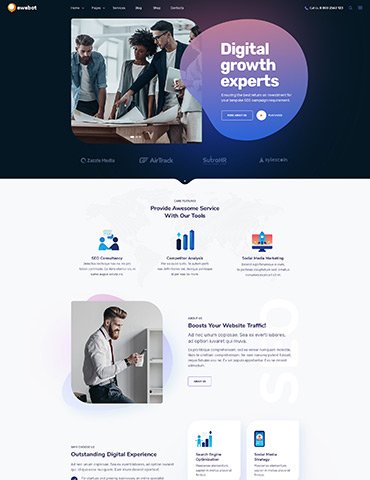Want to know the one thing that every successful digital marketer does first to ensure they get the biggest return on their marketing budget? It’s simple: goal-setting. This is an absolutely essential practice for any digital marketer who knows how to execute their campaigns in a productive, cost-effective way. With a few. With a few simple tips, you can be doing the same in no time! In this blog, we’ll walk you through the first steps every savvy digital marketer takes to ensure that they’re on target to hit all their marketing objectives. Get ready for revenue!
Complete Sales Evaluation of Data Processing for Business Products and Services by Lead Generation
The first step is clearly identifying which goals you want to achieve. Get specific. Do you want to increase brand awareness? Are you all about locking in leads? Do you want to establish a strong network of influencers that can help you be discovered? How about pushing engagement on social media?


Get Specific
Lead generation is the process of identifying and attracting potential customers (leads) for a business’s products or services. These leads are individuals or organizations who have shown interest in what the business offers and have provided their contact information, such as email addresses, phone numbers, or other relevant details, to receive further information or engage in discussions.
Lead generation is a crucial aspect of marketing and sales efforts, as it helps businesses build a pool of potential customers to nurture and convert into paying clients. Here are some common methods and strategies used in lead generation:
-
Content Marketing: Creating and sharing valuable and relevant content, such as blog posts, ebooks, videos, and webinars, to attract and engage potential leads.
-
Landing Pages: Designing dedicated web pages with compelling offers or resources, where visitors can provide their contact information in exchange for access to the content or offers.
-
Social Media Marketing: Using social media platforms to reach and engage with a target audience, often by sharing content, running ads, and interacting with followers.
-
Email Marketing: Sending personalized and targeted emails to subscribers and potential leads, providing them with valuable information and offers.
-
Search Engine Optimization (SEO): Optimizing a website’s content to improve its ranking in search engine results, making it easier for potential leads to find the business.
-
Paid Advertising: Running paid advertising campaigns on platforms like Google Ads, Facebook Ads, or LinkedIn Ads to target specific demographics and drive traffic to lead generation pages.
-
Referral Marketing: Encouraging satisfied customers to refer others to the business in exchange for incentives or rewards.
-
Networking and Events: Attending industry-related events, conferences, and trade shows to connect with potential leads in person.
-
Webinars and Workshops: Hosting online or in-person educational events to showcase expertise and gather leads from attendees.
-
Lead Magnets: Offering incentives like free trials, samples, or discounts to entice potential leads to provide their contact information.
Once businesses collect leads, they typically use lead nurturing techniques to build a relationship with these potential customers, provide them with relevant information, and guide them through the sales funnel. The ultimate goal of lead generation is to convert these leads into paying customers, thereby driving revenue and growth for the business.

Establishing a solid vision for your business is the first step to planning your digital marketing budget. Always keep your final goals in sight when organising anything for your company. When deciding which steps to take next in your business, ask yourself how they will help you achieve the goals you outlined in Step #1. This will ensure that you stay on track and prevent you from spending your budget on anything that won’t help you achieve.
Cum et essent similique. Inani propriae menandri sed in. Pericula expetendis has no,
quo populo forensibus contentiones et, nibh error in per.Denis Robinson
As your budget progresses and evolves, continue referring to your SMART objectives. Stay focused and remember your goals – they will always inform what your next step will be!




